Quantum AI Erfahrungen: Common Technical Issues and Solutions
Quantum AI, or quantum artificial intelligence, is a cutting-edge technology that combines quantum computing and artificial intelligence to solve complex problems that are beyond the capabilities of classical computers. While Quantum AI holds great promise for revolutionizing industries such as healthcare, finance, and logistics, it also presents a unique set of technical challenges that developers and researchers must overcome. In this article, we will explore some common technical issues encountered when working with Quantum AI and discuss potential solutions to these challenges.
Common Technical Issues
1. Quantum Error Correction: One of the primary challenges facing Quantum AI is error correction. Quantum computers are highly susceptible to errors due to decoherence and other quantum phenomena. Error correction techniques such as quantum error correction codes are essential for ensuring the reliability and accuracy of quantum computations.
2. Noise and Decoherence: Noise and decoherence are inherent aspects of quantum systems that can corrupt quantum information and lead to inaccuracies in calculations. Researchers are actively developing strategies to mitigate noise and decoherence, such as error correction codes and error suppression techniques.
3. Limited Quantum Gate Fidelity: Quantum gates are the building blocks of quantum algorithms, and their fidelity – the accuracy with which they perform operations – is crucial for the success of Quantum AI applications. Improving gate fidelity requires advancements in hardware design, calibration, and error correction techniques.
4. Scalability: Another technical challenge in Quantum AI is scalability. Scaling quantum systems to larger numbers of qubits presents significant engineering and design hurdles. Researchers are exploring various elon musk trading app approaches, such as modular architectures and error-corrected logical qubits, to achieve scalable quantum computing.
5. Resource Constraints: Quantum computing requires specialized hardware, software, and expertise, making it challenging for organizations to adopt Quantum AI. Addressing resource constraints involves investing in quantum infrastructure, training skilled professionals, and fostering collaborations within the quantum community.
Potential Solutions
1. Error Correction Techniques: Researchers are developing innovative error correction codes, such as surface codes and toric codes, to protect quantum information from errors. These codes detect and correct errors in quantum computations, enhancing the fault tolerance of quantum systems.
2. Quantum Error Suppression: Error suppression techniques, such as dynamical decoupling and optimal control, can mitigate the effects of noise and decoherence in quantum systems. By actively suppressing errors, researchers can improve the reliability and stability of quantum computations.
3. Gate Calibration and Optimization: Improving the fidelity of quantum gates requires precise calibration and optimization of hardware components. Techniques such as randomized benchmarking and gate tomography are used to characterize and optimize quantum gates, enhancing their performance and accuracy.
4. Modular Architectures: Modular architectures enable the integration of smaller quantum processors into larger, scalable systems. By connecting modular components through quantum interconnects, researchers can build configurable and extensible quantum computing platforms.
5. Quantum Cloud Services: Quantum cloud services provide on-demand access to quantum computing resources for organizations that lack the expertise or infrastructure to build their quantum systems. By leveraging cloud-based quantum computing platforms, businesses can accelerate their Quantum AI adoption and development efforts.
In conclusion, Quantum AI Erfahrungen present exciting opportunities and challenges for researchers and developers. By addressing common technical issues such as error correction, noise mitigation, gate fidelity, scalability, and resource constraints, the quantum community can advance the field of Quantum AI and unlock its full potential for transforming industries and solving complex problems. By leveraging innovative solutions and collaborative efforts, we can overcome these challenges and usher in a new era of quantum-powered artificial intelligence.
